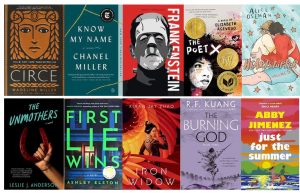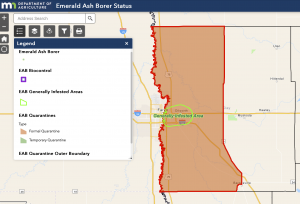After years of working on impressive resumes, it is easy to overlook the importance of learning how to impress in person, and at the “Interviewing Skills that Lead to Offers” workshop, Concordia Career Center’s Assistant Director Sue Zern helped students prepare.
There are major deal-breakers and key tips for interviewing for jobs, internships, and graduate programs. According to Zurn these interviews are highly important, “You never get a second chance to make a first impression,” she said.
Deal-Breakers
Cell Phones: If a phone so much as vibrates during an interview, some interviewers will end the interview immediately. Even if this is not the case, it still shows that the interview is not important enough to get the interviewee’s full attention.
Jake Nelson, a sophmore, can see why cell phones are a distraction.
“I never thought about that before,” Nelson said, “but even if I’m in class or at a movie theater it’s rude.”
This is a major problem that is easy to forget and obviously a good idea. Turn cell phones completely off or, better yet, leave it in the car.
Attitude: Crabbiness, having an off day, or simple frustration can’t show. An aloof, apathetic or pompous interviewee is not a desirable employee, Zurn said.
Lies: It’s self-explanatory; don’t do it.
Sensationalized Answers: Avoid over-sensationalizing answers. They tend to be vague and long-winded.
Key Tips
Do Your Homework: Know about the job and company, and look beyond the company website. Look online for major changes in recent history such as a merger or scandal. Warning: Know what you’re getting into so you aren’t stumped if they ask you about the company.
Be Early: Arrive at least 10 minutes early, and consider doing a test-drive if the directions or parking are complicated. Greet the receptionist, sit down and look over your resume or notes. Warning: Don’t read the copy of People magazine as it says “I like gossip,” according to Zurn.
Shake Hands Properly: Shake with your right hand until both interviewer and interviewee have introduced themselves. Warning: Avoid the one-shake, double-handed or left-hook variations of the handshake. Do not extend your hand as if expecting the interviewer to kiss it; this is not the 1800’s.
Dress Appropriately: Wear colors that accentuate your eyes, as this fosters eye contact and is considered your “power color.” Men, it’s time to pull out the suit, tie and dress pants. Women, the key is to think conservative. Pantsuits and skirts are okay, but avoid dresses. Coordinate shoes and purse, but keep jewelry to a minimum. Beware of the neckline. Above all, “help them envision you as a young professional instead of as a student,” Zurn said.
While these deal-breakers and key tips are important, the issue of nerves and responses make up the content of the interview.
Nerves are okay, but do not let them control you.
“My biggest concern with interviews is what if I don’t know the answer,” Michelle Cotton, junior, said.
The interview is about connecting a face with your facts, so be yourself. When they ask for something unique, avoid personal goals such as starting a family or a small business. These cost the potential employer. Stick to professional goals, and avoid controversial issues or serious deal-breakers.
“Don’t dig into your closet of skeletons and pull out something ugly!” Sue Zurn said.
On the other side of the coin, do not be afraid to talk yourself up. Avoid cockiness, but Zurn’s advice is to “check that humble pie [stuff] at the door” and be confident.
Prepare examples showing your strengths, conflict resolution skills, leadership ability and lessons learned from failures using the Career Center’s “STAR” technique:
Situation or Task: Specifically and efficiently describe the event.
Action you took: Even if a group was involved, keep the focus on your contribution to the effort. Consider what you could have done differently.
Results: What happened? What did you learn? What would you do differently?
Always remember that you never know where you fall in relation to other applicants, so an interview could land or lose the job. Some of the best co-workers have come from the maybe-pile, Zurn said. The interview did the trick.
For more information, mock interviews, lists of upcoming workshops, and much more, visit www.ConcordiaCareerCenter.com or stop by the Career Center.








Be First to Comment